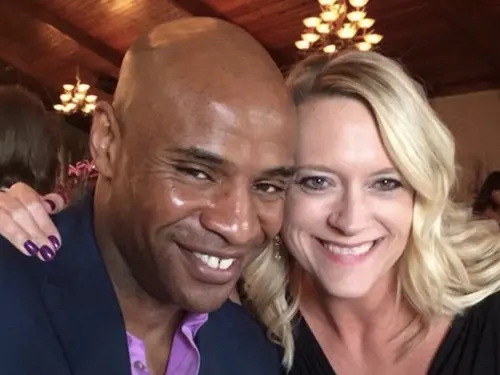 Even the most genuine bonds can be strained by the weight of societal prejudice. If you are in or are beginning an interracial relationship, you are likely all too familiar with the distinct hurdles that come with loving someone of a different race. A highly publicized example of this is the intense scrutiny and difficulties faced by Prince Harry and Meghan Markle. Their experience has ignited crucial conversations about interracial dating, forcing many to question why such challenges persist in our modern era.
Even the most genuine bonds can be strained by the weight of societal prejudice. If you are in or are beginning an interracial relationship, you are likely all too familiar with the distinct hurdles that come with loving someone of a different race. A highly publicized example of this is the intense scrutiny and difficulties faced by Prince Harry and Meghan Markle. Their experience has ignited crucial conversations about interracial dating, forcing many to question why such challenges persist in our modern era.
While all relationships require work and offer rewards, interracial couples navigate a unique set of societal pressures and stigmas. As a therapist focused on racial trauma, I have observed the deeply personal and relational toll these external stresses can take. In the following sections, I will share guidance designed not only to help you manage these pressures but also to strengthen and celebrate the bond you share with your partner. These insights, though not a cure for external bias, can empower you to build a partnership defined by resilience and love.
Understanding the Journey of Interracial Love
 Interracial relationships stand as a powerful reflection of love’s ability to cross cultural divides and transcend social expectations. If you're entering or exploring such a relationship, it’s natural to have questions or concerns—especially given the complex history that surrounds love across racial lines.
Interracial relationships stand as a powerful reflection of love’s ability to cross cultural divides and transcend social expectations. If you're entering or exploring such a relationship, it’s natural to have questions or concerns—especially given the complex history that surrounds love across racial lines.
Historically, many societies enforced strict boundaries against interracial unions through legislation and social stigma. Laws known as anti-miscegenation statutes criminalized marriage between people of different racial backgrounds, perpetuating the harmful idea that such relationships were somehow improper or undesirable. The very term “miscegenation” carries a dehumanizing tone, reducing human connection to biological mingling—an outdated concept that rightly feels unsettling today.
Such regulations were rooted in fear and prejudice, framing interracial love as a threat to social structure. Yet courageous couples throughout history resisted these oppressive norms, leading to landmark changes. One pivotal moment in the United States was the 1967 Loving v. Virginia Supreme Court case, which finally struck down laws banning interracial marriage—a victory for love and justice.
Even today, interracial couples continue to navigate challenges uncommon in same-race relationships. While the core of any relationship is love and commitment, interracial partners often encounter added layers of complexity. Cultural differences may require extra patience and communication, and reactions from family or friends can vary widely—sometimes affecting the couple's emotional support system and bringing external stress into the relationship.
Navigating the Complexities of Interracial Relationships
 While interracial relationships continue to gain visibility and acceptance globally, they often come with a distinct set of challenges rooted in cultural, social, and familial contexts. Through conversations and shared experiences with diverse couples, I’ve observed several recurring themes that can shape—and sometimes strain—these meaningful connections.
While interracial relationships continue to gain visibility and acceptance globally, they often come with a distinct set of challenges rooted in cultural, social, and familial contexts. Through conversations and shared experiences with diverse couples, I’ve observed several recurring themes that can shape—and sometimes strain—these meaningful connections.
Cultural Backgrounds and Values
Cultural distinctions often form one of the most profound layers of an interracial relationship. Differing traditions, customs, and deeply held values can become sources of misunderstanding or tension. Research has indicated that cultural friction can contribute to higher stress levels in interracial marriages. Mutual respect and a willingness to learn are vital in bridging these gaps and fostering harmony.
External Judgment and Social Bias
Sadly, prejudice remains a reality. Interracial couples may face everything from subtle glances and insensitive remarks to overt exclusion within social or family circles. Confronting these external pressures demands resilience, empathy, and a united front as a couple.
Family Acceptance and Cultural Loyalty
Not all families embrace interracial partnerships. Some may express hesitation or disapproval, rooted in cultural expectations or generational perspectives. Navigating the emotional tug-of-war between family ties and personal commitment can test even the strongest bonds.
Communication Across Cultures
Effective communication is the cornerstone of any relationship—but when partners come from different cultural backgrounds, their ways of expressing feelings, resolving conflict, or showing respect may vary widely. These differences can lead to unintentional misunderstandings unless both individuals cultivate patience and curiosity.
Religious and Spiritual Beliefs
When partners adhere to different faiths or spiritual practices, questions around holidays, rituals, and child-rearing may arise. These are not merely logistical issues but often touch on core values and identities.
Identity and Belonging
Individuals in interracial relationships may sometimes feel caught between worlds—questioning where they fit within their own racial or ethnic communities. For instance, some Black women report facing criticism or accusations of “selling out” when partnering outside their race. These external judgments can trigger internal conflict about identity and allegiance.
Awareness of Racial Privilege
When one partner comes from a racially privileged background and the other has experienced systemic marginalization, there can be a gap in lived experience. This disconnect may lead to moments of unintentional oversight or insensitivity. Acknowledging and discussing privilege is a necessary, if challenging, part of growing together.
Cultural Appreciation vs. Appropriation
Celebrating one another’s heritage is beautiful—but it’s important to distinguish genuine respect from appropriation. Being mindful not to exoticize or trivialize sacred traditions helps build a foundation of true honor and understanding.
Raising Multiracial Children
Parents in interracial relationships may face unique conversations around identity with their children. Helping a child navigate a multiracial world—and claim all parts of themselves with pride—requires intentionality and open dialogue.
Finding Community and Support
In areas with limited diversity, interracial couples can sometimes feel isolated. Building a network of friends, mentors, and communities that affirm their love and identity can provide essential emotional nourishment.
Every interracial relationship is unique. Some couples may move through these challenges with relative ease; for others, the same issues may feel deeply taxing. What remains universal is the need for empathy, communication, and a shared commitment to facing these complexities together.
15 Essential Insights for Nurturing an Interracial Relationship
 Entering an interracial relationship is a meaningful journey—one that calls for openness, empathy, and a shared commitment to growth. To help you and your partner build a relationship that’s not only strong but truly fulfilling, here are 15 thoughtful insights to guide you along the way.
Entering an interracial relationship is a meaningful journey—one that calls for openness, empathy, and a shared commitment to growth. To help you and your partner build a relationship that’s not only strong but truly fulfilling, here are 15 thoughtful insights to guide you along the way.
1. Love the Person, Not a Stereotype
It’s important to recognize when attraction crosses into fetishization. Appreciate your partner for their character, values, and personality—not as a representation of their race. If you notice your partner frequently reducing you to racial stereotypes or showing a pattern of only dating within your racial group, it may be worth reflecting on whether you’re being valued for who you truly are.
2. Deepen Your Cultural Understanding
Take an active role in learning about your partner’s cultural heritage. Explore traditions, foods, and histories together—not as a checklist, but with genuine curiosity. Don’t rely solely on your partner to teach you; seek out books, films, and local cultural events to broaden your perspective independently.
3. Talk Openly—Even When It’s Uncomfortable
Strong relationships thrive on honest dialogue. Make space to discuss topics like faith, family expectations, gender roles, and how you each view important life decisions. These aren’t one-time talks, but ongoing conversations that help you understand each other more fully over time.
4. Acknowledge and Unlearn Your Biases
We all carry unconscious biases. Being in an interracial relationship can bring these to the surface. Embrace this as an opportunity to grow—reflect on your assumptions, listen with humility, and commit to challenging stereotypes you may have internalized.
5. Protect Your Relationship from Outside Pressures
Not everyone in your life may support your relationship. It’s okay—and sometimes necessary—to set loving but firm boundaries with family or friends. Your relationship deserves to be honored and protected, even when that means prioritizing your shared happiness over others’ opinions.
6. Be Each Other’s Safe Harbor
You and your partner may face challenges that others in your life don’t fully understand. That’s why it’s vital to nurture emotional intimacy and offer consistent support. When one of you feels unseen or hurt, be the person who listens, believes, and stands beside them without judgment.
7. Stand Together Against Prejudice
Racism and discrimination may touch your lives in various ways. Commit to facing these experiences as a team. If you hold racial privilege, educate yourself on how your experience differs from your partner’s, and use that awareness to support them—not just in words, but in action.
8. Honor Each Other’s Heritage
A true partner doesn’t ignore or minimize your cultural identity—they embrace it. If your partner isn’t making an effort to understand or respect your background, it may reflect a deeper disconnect. You deserve someone who values every part of who you are.
9. Build a Community That Gets It
Seek out friendships and communities where interracial and multicultural relationships are celebrated. Connecting with others who share similar experiences can provide affirmation, practical advice, and a profound sense of belonging.
10. Lead with Patience and Curiosity
Misunderstandings will happen. When they do, respond with patience rather than defensiveness. Create a relationship culture where both of you can ask questions, express feelings, and learn together—even when it’s messy.
11. Blend Your Traditions with Intention
Celebrate holidays, rituals, and customs from both of your cultures. This isn’t just about participation—it’s about weaving your histories together to create a shared story that honors where you’ve come from and where you’re going.
12. Plan Ahead with Honesty
As your relationship deepens, have courageous conversations about the future. Discuss how you’ll raise children with multiple heritages, navigate cultural expectations, or handle disagreements related to identity or family. These talks can strengthen your alignment and trust.
13. Let Love and Respect Lead
Above all, let your relationship be rooted in mutual respect, kindness, and a deep appreciation for one another. Love isn’t just a feeling—it’s a daily practice of seeing, hearing, and cherishing your partner in their entirety.
14. Share Laughter and Lightness
Humor can ease tension and bring you closer—especially when navigating cultural differences. Just be sure that the laughter you share never comes at the expense of your partner’s dignity or identity.
15. Don’t Hesitate to Seek Support
If cultural pressures, communication breakdowns, or external stresses start to feel overwhelming, consider reaching out to a therapist who specializes in intercultural relationships. There’s strength in asking for help—it can offer new tools and perspectives that enrich your connection.
Between Love and Difference: Embracing Your Unique Relationship
 While society has progressed toward greater openness, interracial relationships continue to navigate complex social realities. The lingering effects of centuries of ideological conflict cannot be easily erased by legal advances or the passage of time. If you are in an interracial relationship and reading these words—the unease, cultural friction, or external judgment you may have experienced are all valid and natural.
While society has progressed toward greater openness, interracial relationships continue to navigate complex social realities. The lingering effects of centuries of ideological conflict cannot be easily erased by legal advances or the passage of time. If you are in an interracial relationship and reading these words—the unease, cultural friction, or external judgment you may have experienced are all valid and natural.
Always remember: your relationship is a beautiful convergence of two life experiences and cultural backgrounds. Love between different races is not only possible—it can grow into a healthy, enduring, and deeply vibrant bond.
First, acknowledge and confront the challenges you may face. Whether it’s the weight of societal stereotypes or the expectations rooted in family traditions, these feelings deserve to be taken seriously. It’s okay to feel weary or confused during difficult moments, but don’t forget to look back at the path you’ve walked together—the expanded perspectives, the daily life enriched by your differences, and the warmth of two hearts growing closer through mutual understanding.
If these challenges ever leave you feeling overwhelmed, remember: seeking support is not a sign of weakness—it’s an act of relational wisdom. In particular, connecting with counselors experienced in multicultural and interracial dynamics can provide a safe space to express feelings, navigate differences, and develop your unique communication style.
If you're looking for a dedicated platform for interracial dating, InterracialDatingReview offers a curated selection of 10 professional and trustworthy websites to help you begin your journey.
